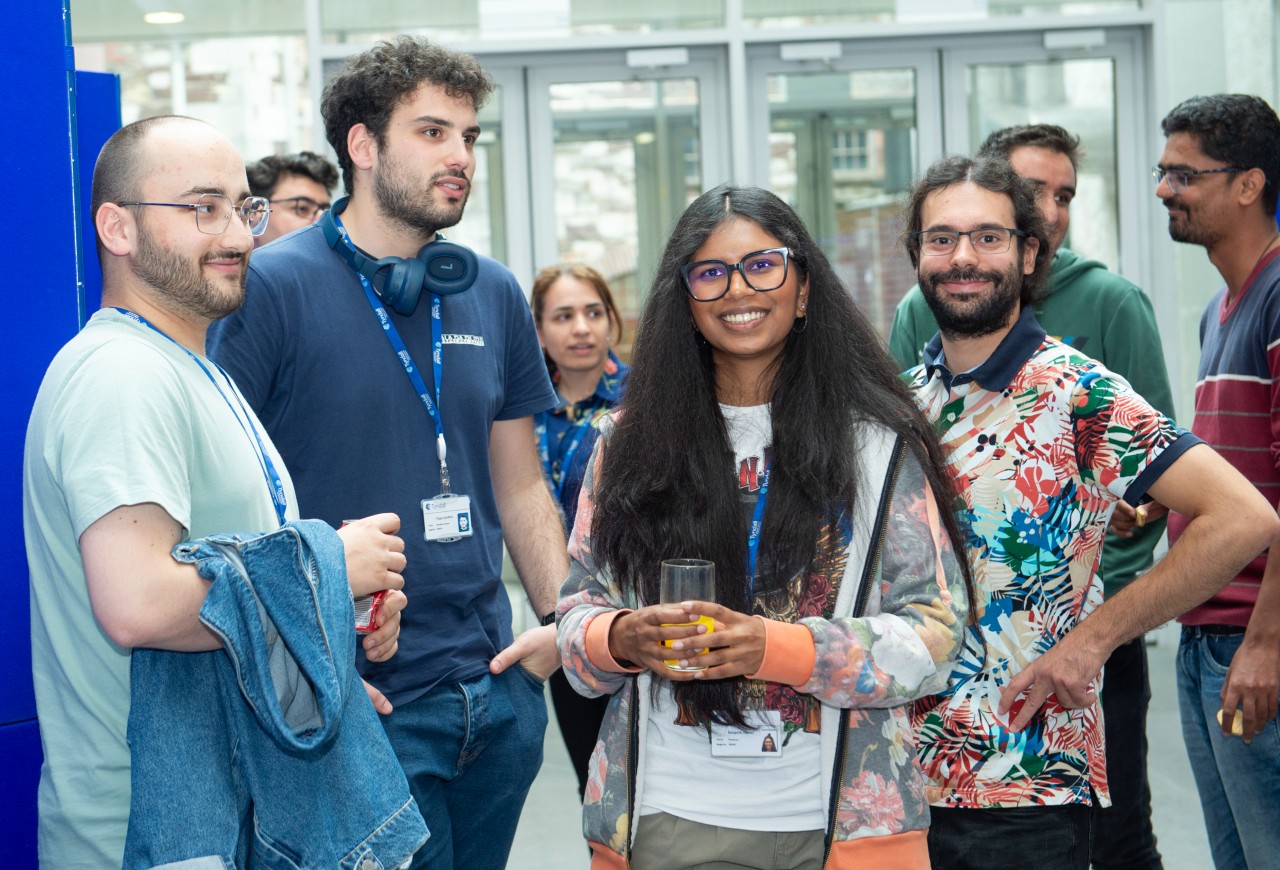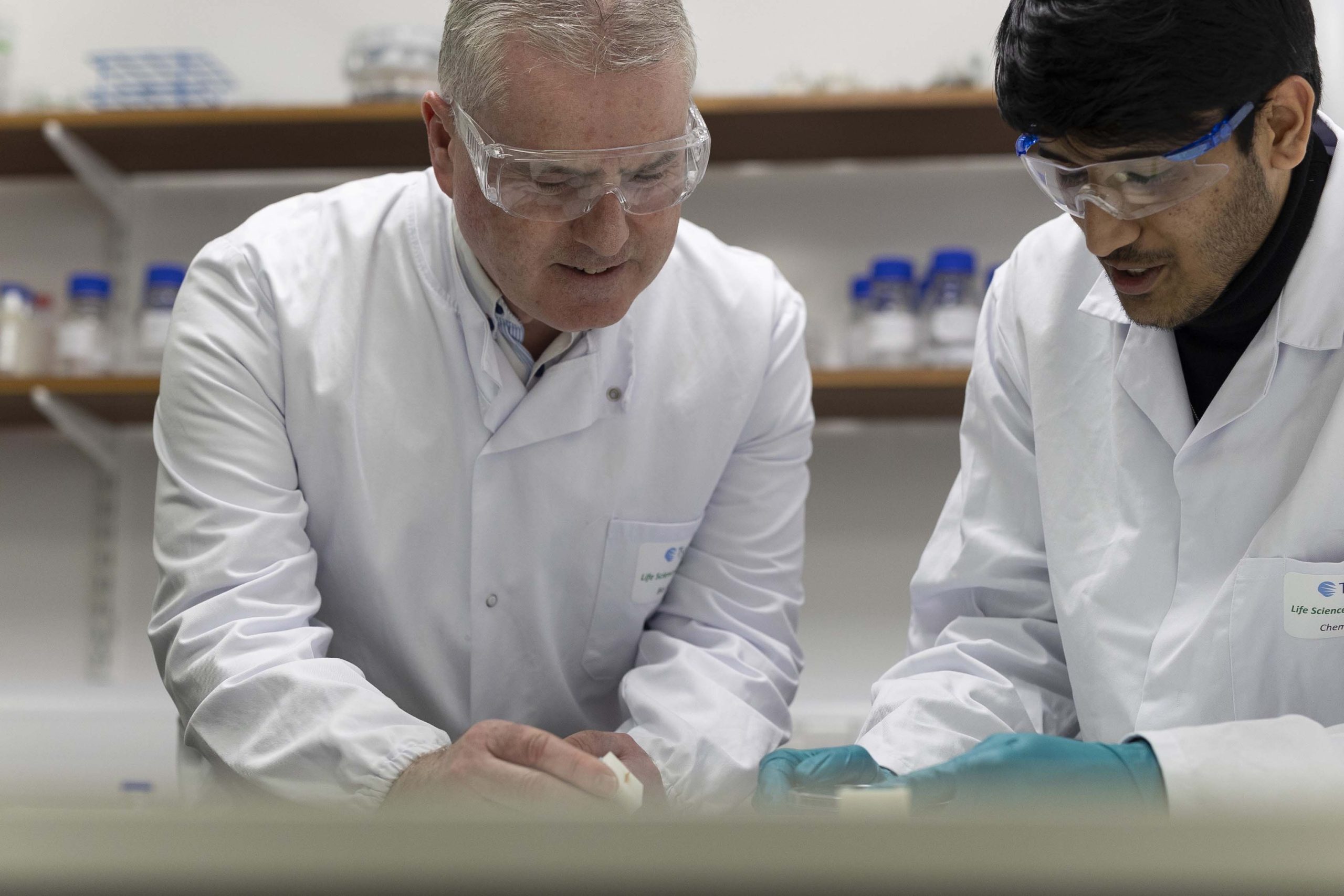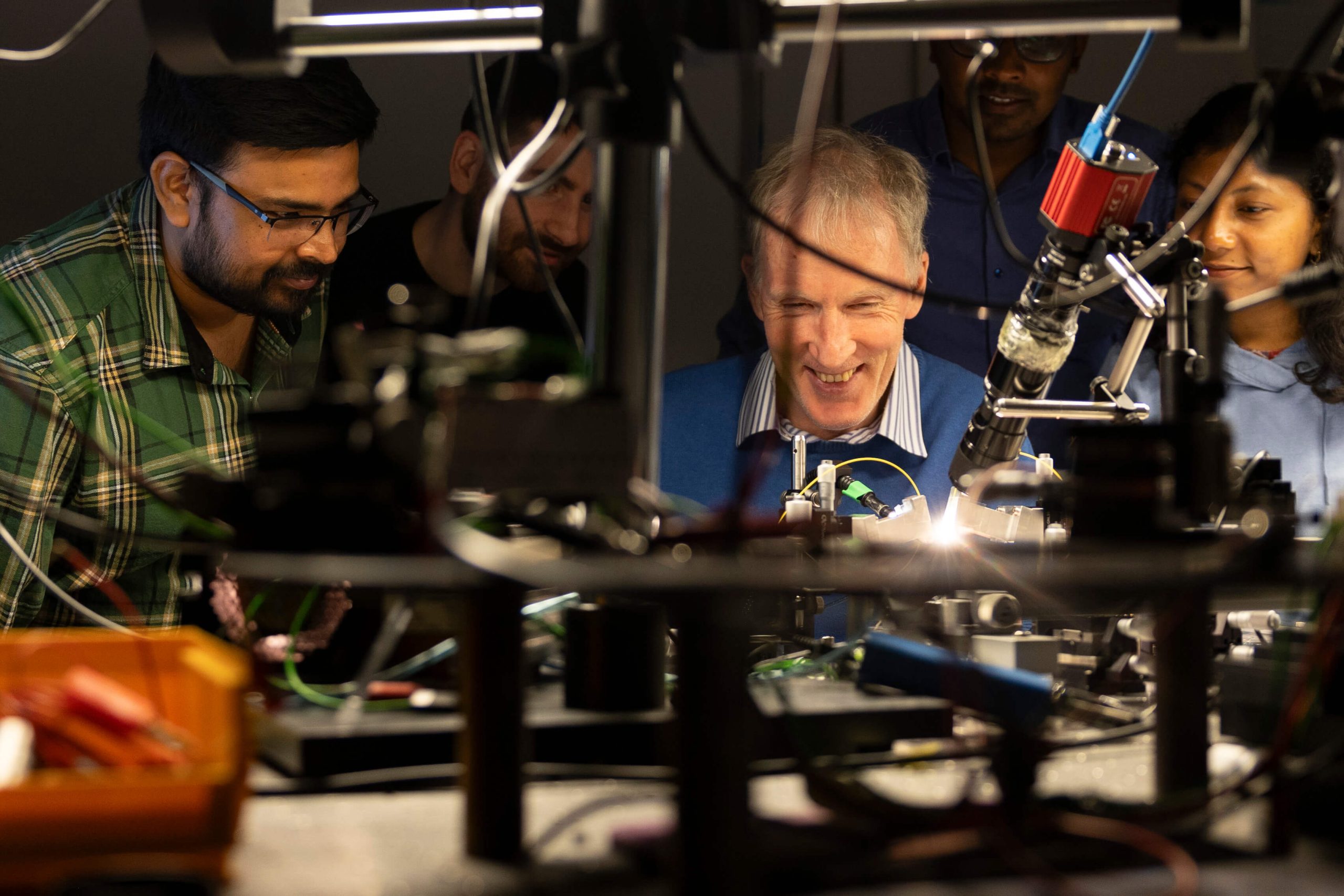
Postgraduate Education
The nature of PhD education is changing, both nationally and internationally. While original research has always been and will remain the core component of all PhD programmes, today’s PhD graduates need a broad range of skills to equip them to pursue careers in a range of employment sectors and in an increasingly challenging employment environment. Our comprehensive and bespoke doctoral training enables graduates develop a range of specialised as well as transferable skills.
University College Cork (UCC) is ranked in the top 2% of research led universities globally and our postgraduate research students work alongside internationally renowned researchers on a wide range of projects aimed at addressing global challenges.
Fully Funded Postgraduate Scholarships
Postgraduate research in Tyndall is funded by a range of national and international funding bodies. Research Masters and PhD students in Tyndall receive a bursary of €22,000 per annum. In addition, University annual fees are paid by the Tyndall National Institute.

PhD Engineering Science, Structured PhD Programme
Tyndall leads an exciting new research-led structured PhD programme, PhD Engineering Science. The programme recognizes that today’s engineering and science graduates need a wide range of skills in order to build successful careers in academia, research or industry. The doctoral training is inter-institutional and developed and delivered by the national graduate education programmes coordinated by Tyndall. The new programme provides students with structured training in;
Technical Subjects:
- Focused, relevant technical training aimed to equip students with the technical background required to pursue their research topics quickly.
Transferable and Generic Skills:
- Providing training on skills necessary to communicate research work including: presentation skills, technical writing training and information literacy.
Further details of the PhD Eng Sc programme can be found here.
Curious to know more?
Get in touch
Masters Degree Programmes
There are a number of programmes available. These include:
- Research-based programmes leading to masters and doctoral (PhD) degrees
- Taught masters programmes.
More details on all the postgraduate programmes available within UCC can be found here.


Who can Study at Tyndall?
Our students come from a wide variety of multi-disciplinary backgrounds and disciplines including:
- electrical and electronics engineering
- microelectronics
- physics
- chemistry
- life sciences
- mathematics
- computer science
- other relevant science and engineering disciplines.
Most Tyndall students are registered on academic programmes in University College Cork, UCC or Munster Technological University, MTU. However, Students from any University/3rd level college can undertake some or all of their research in Tyndall. The university/institute that you are registered with will award your degree.
Research and supervision is performed at Tyndall and students are required to fulfil the regulations for the awarding of the degree as set forth by their University/3rd level college, the department in which they are registered, and Tyndall.

